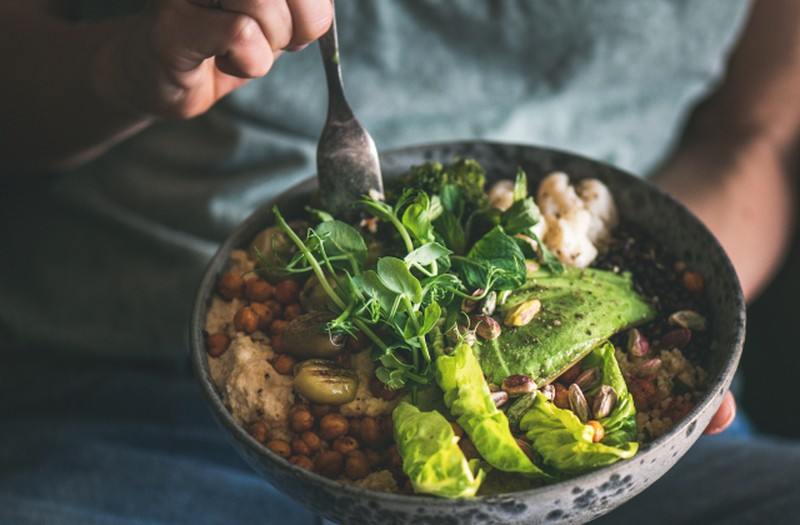Canned Food
Posted by Andrea Nakayama

You may already be someone who soaks your dried beans overnight and cooks them with kombu seaweed to aid digestibility. Or you may only eat beans at the burrito shop in town. Yet we all need healthy ways to stock the pantry for those nights when time is tight or your dropped blood sugar has you searching the cupboards in a near-panic.
So what about canned beans?
Are they good or bad?
The answer is tricky. Most canned foods ~ even if those foods are healthy and organic ~ are dangerous to your health. The problem is the can, not necessarily the food.
You’ve likely heard of bisphenol-A (BPA). BPA is a ubiquitous chemical used to line the interiors of food and beverage containers, specifically metal cans (think beans, soda, and those little mandarin oranges I grew up eating). BPA is also found in some baby bottles (unless labeled otherwise), bicycle helmets, water cooler jugs, sealants used on our teeth, milk and juice containers, and myriad other places that make your exposure to it quite insidious.
BPA is insidious particularly because it leaches out of those container linings right into your food and beverages. From your food and beverages it naturally travels into your bloodstream. And what it does there is causing perilous consequences to your health.
BPA is an endocrine disruptor. Over 90 percent of Americans tested had measurable levels of BPA in their urine. While we adults can apparently clear the toxic chemical from our bodies with some efficiency, the constant exposure renders the build-up more than our taxed bodies can handle. Worse still is that babies, children, and fetuses cannot readily excrete BPA. Due to these findings, Canada, as well as several US States, have banned BPA from baby bottles.
Yet it still lines many cans that line our kitchen cupboards.
Does that exposure matter to me and my family? Well, yes, it does! The endocrine system uses hormones to balance and regulate sexual reproduction, metabolism, and growth and development. BPA in particular mimics the hormone estrogen. In the body BPA fits into receptors specifically designed for estrogen. When a synthetic compound sits in a receptor apportioned for a specific natural hormone, there are health consequences. Those consequences include increased rates of breast and prostate cancer, birth defects, learning and behavioral challenges for children, early onset puberty, and, as we’re seeing more of, obesity. In fact, scientists are now calling substances like BPA “obesogens” because of the obvious correlation they’ve found between increasing rates of obesity and higher levels of endocrine disruptors in our bodies.
Luckily there are a few companies hip to the fact that we need convenience and health. See below for a (sadly short) list of canned foods that DO NOT include BPA in their linings. (Note: I unfortunately couldn’t find a canned pumpkin for last week’s Pumpkin Cream “Cheese” email to fit these requirements. It’s what sent me on this quest!)
(Click on each entry to be taken to on-line ordering information and ask your local stores to stock these brands.)
Native Forest Full-Fat Coconut Milk
Now available in Portland by the case from Our Community Pantry! Order this Thursday.
Eden Foods Canned Beans
Vital Choice Canned Seafood (Wild Salmon, Sardines and Mackeral)
The packaging standards will hopefully change as our awareness grows. In the meantime, we can make the change with our own dollars for our own bodies.
Stock your pantry wisely!
Andrea
EXPERIENCE A FREE TRAINING SERIES WITH ANDREA NAKAYAMA TO HELP YOU
Begin practicing functionally today!
MORE TO EXPLORE
You Might Also Like
Maya Simand: Cancer Survivor to Holistic Cancer Coach
Holistic cancer coach Maya Simand shares her inspiring journey to healing. Discover how Functional Nutrition education empowered her to overcome breast cancer and help others find hope through integrative approaches.
Read MoreEstrogen dominance and breast cancer prevention: A Functional Nutrition approach
Estrogen dominance is a key factor in ER+ breast cancer. This Functional Nutrition guide explores how estrogen dominance increases risk and provides practical strategies to balance hormones and support overall health.
Read MoreThe 3 Roots, Many Branches: A Functional Framework for Clinical Success
As practitioners or aspiring nutrition counselors, we’re all familiar with the frustration of watching people struggle with chronic illness, cycling through symptoms and diagnoses without resolution.
Read MorePutting Patients First with Patient-Centered Care
I recently read an account written by a primary care doctor (PCP) describing a patient who had been passed from one specialist to another—each one focusing on ordering tests, prescribing medications, and ultimately sending her off with more questions than answers. No one paused to truly listen to the patient’s story. No one asked about […]
Read More